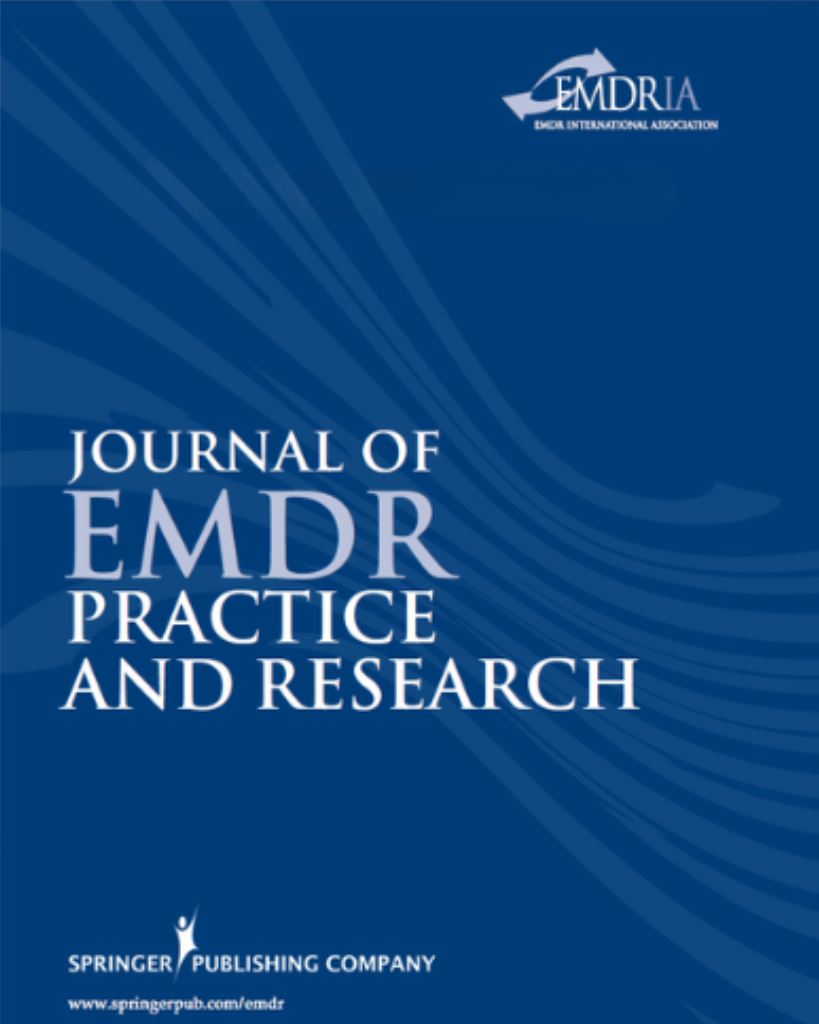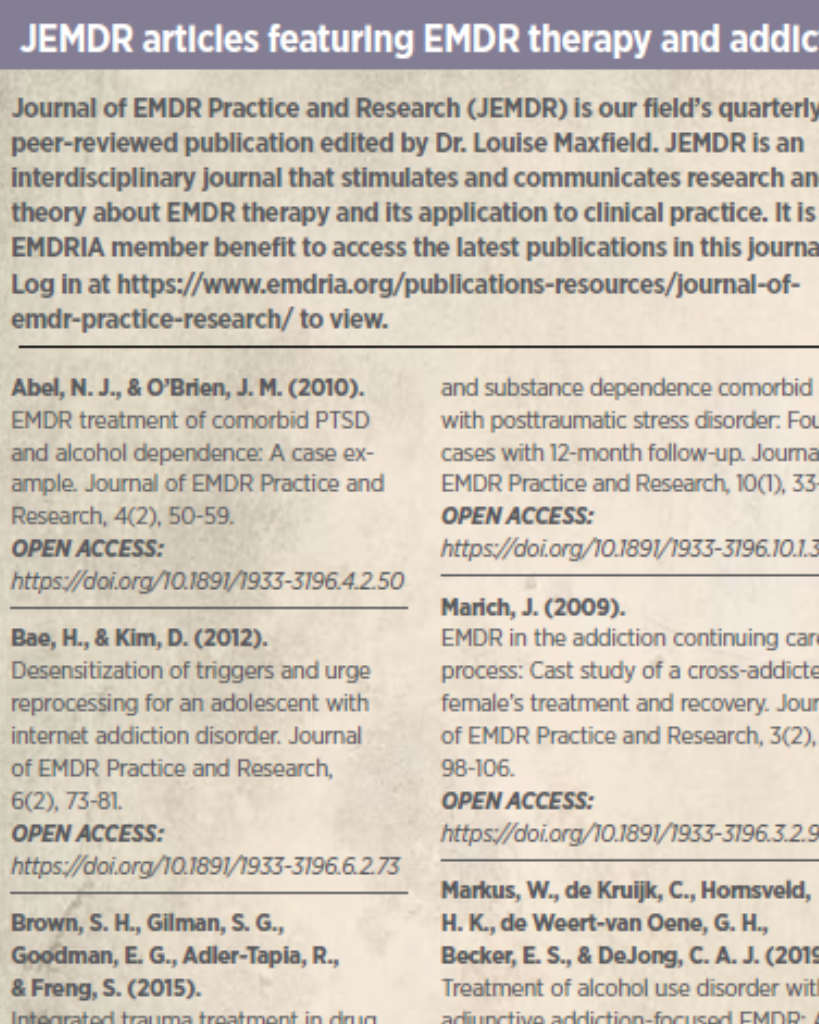EMDR Reprocessing of the Addiction Memory: Pretreatment, Posttreatment, and 1-Month Follow-Up
This randomized controlled study investigated the effects of EMDR therapy in the treatment of alcohol dependency.
Abstract
“This randomized controlled study investigated the effects of eye movement desensitization and reprocessing (EMDR) in the treatment of alcohol dependency. EMDR was applied to reprocess the addiction memory (AM) in chronically dependent patients. The AM includes memories of preparatory behavior, drug effects (drug use), and loss of control (Wolffgramm, 2002). It is understood to involve extensive brain circuitry, drive part of conscious and unconscious craving, change environmental response at an organic level, and modify circuits that link to feelings of satisfaction, future planning, and hope. Thirty-four patients with chronic alcohol dependency were randomly assigned to one of two treatment conditions: treatment as usual (TAU) or TAU plus two sessions of EMDR (TAU+EMDR). The craving for alcohol was measured by the Obsessive–Compulsive Drinking Scale (OCDS) pre-, post-, and 1 month after treatment. The TAU+EMDR group showed a significant reduction in craving posttreatment and 1 month after treatment, whereas TAU did not. Results indicate that EMDR might be a useful approach for the treatment of addiction memory and associated symptoms of craving.”
—Description from publisher
Article Access
Open Access
Hase, M., Schallmayer, S., & Sack, M. (2008). EMDR Reprocessing of the Addiction Memory: Pretreatment, Posttreatment, and 1-Month Follow-Up. Journal of EMDR Practice and Research, 2(3), 170–179. https://doi.org/10.1891/1933-3196.2.3.170
About the Journal
Journal of EMDR Practice and Research (JEMDR) is a peer-reviewed publication devoted to integrative, state-of-the-art papers about EMDR therapy. It is a broadly conceived interdisciplinary journal that stimulates and communicates research and theory about EMDR therapy and its application to clinical practice. JEMDR is the official publication of the EMDR International Association.
Date
August 1, 2008
Creator(s)
Michael Hase, Sabine Schallmayer, Martin Sack
Topics
Addictions
Practice & Methods
Protocols
Extent
10 pages
Publisher
Springer Publishing Company
Rights
Copyright © 2008 EMDR International Association
APA Citation
Hase, M., Schallmayer, S., & Sack, M. (2008). EMDR Reprocessing of the Addiction Memory: Pretreatment, Posttreatment, and 1-Month Follow-Up. Journal of EMDR Practice and Research, 2(3), 170–179. https://doi.org/10.1891/1933-3196.2.3.170
Series
2
Installment
3
Audience
EMDR Therapists
Language
English
Content Type
Article, Peer-Reviewed, RCT
Original Source
Journal of EMDR Practice and Research
Access Type
Open Access





